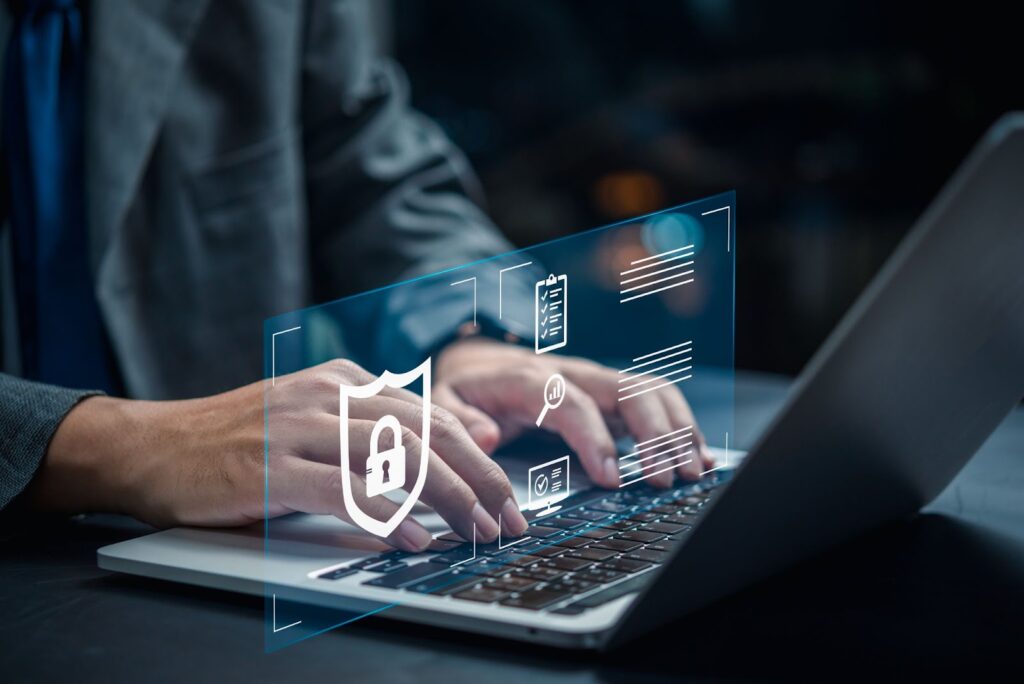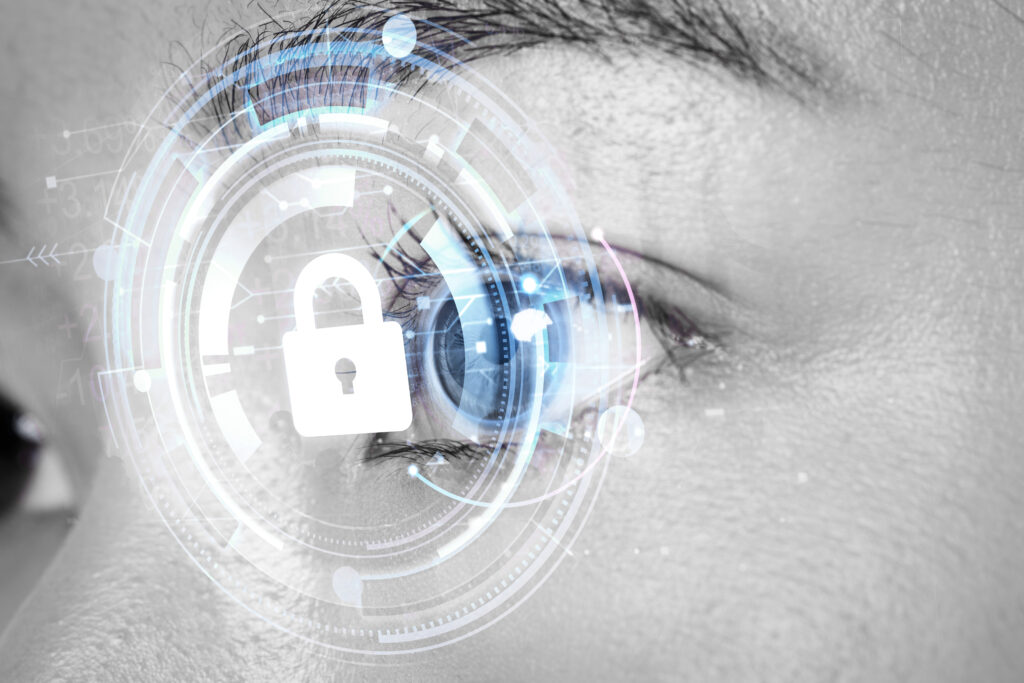1. Introduction
Imagine starting the day at work and finding that all your business data has been blocked by hackers . To recover them, a rescue is required. Does it look exaggeration? Unfortunately, this type of attack is becoming increasingly common , especially between small and medium -sized companies (PMES).
According to IBM report , attacks that used stolen credentials grew 71% over the previous year . What's more, 32% of incidents involve data theft and leakage, which shows a change in cybercriminals behavior. Today, many prefer to sell this information than just to sequest it via attacks such as ransomware .
Why does this matter to your business? For many SME still believe they are "out of the radar" because they are smaller. But in practice, the lack of resources and protection is precisely what makes these companies preferred . The result? Financial losses, damage to reputation and even interruption of operations.
This is why understanding risks and knowing how to act is urgent. And the good news is that even with a leaner structure, you can protect your business with simple, affordable and effective measures .
In this article, you will understand what cybersecurity is applied to the reality of SMEs, know the most common threats, and find out where to start, with practical and low cost solutions.
Good reading!
2. The importance of cybersecurity for small and medium enterprises (SMEs)
For a long time, cybersecurity was seen as an exclusive subject of large corporations, with robust IT departments and millionaire budgets. But this scenario has changed. Today, digital threats do not choose company size : they choose vulnerabilities. And that is precisely where the risk of SMEs lives.
Many of these companies depend on digital systems to run their operations, but they still need a proper protection structure . The combination of an increasingly exposed digital environment with low information security creates the perfect storm so that cybercriminals act easily.
The impact goes far beyond the technical part . An attack may stop operations for days, generate financial losses, affect customer relationships, and even generate legal sanctions if you involve data protected by standards such as LGPD.
That is, cybersecurity is no longer a differential to becoming a survival factor in the business world . And the first step to protecting yourself is to understand clearly what is really at stake - and how to defend yourself.
2.1. The concept of cybersecurity applied to the reality of the market
Cybersecurity is more than installing antiviruses or creating strong passwords. These are a set of strategies, processes and technologies that protect a company's data, systems and operations against unauthorized access, attacks and failures.
e-mail protection to control of access to critical systems and data security stored in the cloud. For SMEs, this needs to be simple, accessible and effective , not a technical or financial obstacle.
Most importantly, investing in cybersecurity does not just mean reacting to incidents. It means acting preventively, reducing risks and ensuring business continuity even in the face of increasing threats.
2.2. Main threats for SMEs
Although they share the same digital environment of large companies, SMEs face specific challenges when it comes to security . Some common threats include:
- Phishing and Social Engineering : attacks that deceive employees to obtain confidential data;
- Ransomware : Data hijacking with payment requirement for release;
- Malware and Spyware : Malicious software that infiltrate devices and networks;
- Committed credentials : Reused or weak passwords facilitate unauthorized access;
- Vulnerabilities in outdated systems : Many SMEs postpone updates for lack of time or resources, opening critical breaches.
And these threats have something in common: they exploit the lack of preparation and structured security policies.
2.3. Good cybersecurity practices for SMEs
The good news is that you don't have to have a team of experts or invest loudly to start protecting yourself! Some simple actions already make a big difference, such as:
- Educating the team : Well -oriented employees are the first line of defense;
- Activate Multifator Authentication (MFA- Multi-Factor Authentication ) : An extra layer of essential security;
- Updating systems regularly : prevents known failures from being explored;
- Make frequent data backups : and store it safely;
- Control access : Not everyone needs access to everything.
These good practices already have the power to create a solid protection base , especially important for businesses that are starting to digitize their operations quickly.
Now that you understand why cybersecurity is so strategic to your business and saw how it is possible to start with practical actions, how about taking your most common questions on the subject?
In the next section, we answered the most frequent questions about PMES cybersecurity, so you can keep advancing more safely and clearly ! Check it out.
3. FAQ: most frequent questions about cybersecurity for SMEs
Before you get your hands dirty, it is natural that doubts arise . And often, it is precisely they delayed decision making.
To help you, we put together the questions we receive most from SME leaders and managers when it comes to cybersecurity. Our proposal here is to uncomplicate the theme and show that, yes, you can start with what you have now - and do it the right way! Let's go?
1) Why is cybersecurity important for small and medium enterprises?
SMEs are frequent targets of cyber attacks because in many cases they have less lean structures and less robust defenses. An attack may mean hours or days of stoppage, sensitive data loss, financial loss and damage to reputation. In addition, more and more companies are digitally connected, which increases the risk surface. To have a cybersecurity strategy is to ensure that the business continues to operate safely and reliably, even in a scenario of growing threats.
2) How can I start implementing cybersecurity on my SME without spending too much?
You can start with simple and low cost actions that already make a real difference in digital protection of your business. Train your team to recognize common blows (such as emails ), keep systems up to date, use strong and unique passwords, activate multifactor authentication, and backups are initial steps that do not require big investment. The key is to create a digital security routine, even with a small team.
3) What is multifactorial authentication (MFA) and why is it important?
Multifator authentication adds an extra security layer to systems and data access. Instead of relying only on a password, it requires a second verification step - such as a code sent to the phone or an authenticating app. This dramatically reduces the risk of invasion, even if the password is discovered. It is one of the most recommended practices in any cybersecurity strategy, especially for critical access.
4) What is the difference between firewall and antivirus?
Although both are security tools, they act in different ways. Firewall acts as a barrier that controls network traffic, filtering what may or may not get in and out of its systems . Already the antivirus acts within the devices, identifying and eliminating malicious files. Together they help protect network and computers from attacks and digital infections.
5) How to protect data in the cloud safely?
The cloud is safe as long as used with good practices. The first step is to choose a reliable and recognized provider on the market. Then it is essential to configure access correctly, limit permissions by profile, activate data encryption, and implement multifactor authentication. Monitoring access and periodically reviews controls also ensures that data remains protected even as the business evolves.
6) What to do if my company is the victim of a cyber attack?
The first step is to isolate the affected systems to prevent the attack from spreading. Then report the incident to the areas involved and, if necessary, to the authorities and customers. Use backups to restore data and systems, and review records to understand how the invasion happened. More than just reacting, this is the time to reinforce security policies, close vulnerabilities and review protocols to avoid further incidents.
7) How to ensure compliance with data protection laws such as LGPD?
Being in accordance with the Brazilian LGPD (General Data Protection Law) involves mapping which personal data your company collects, how this data is stored, used and protected. It is important to have clear privacy policies, obtain consent from holders when necessary and ensure technical protection measures such as encryption, access control and backup . Cybersecurity is a fundamental ally to ensure this conformity continuously.
8) What are the best cybersecurity practices for companies with few resources?
Even with limited resources, it is possible to apply good effective practices:
- Prioritize training, after all, many safety failures happen by human error;
- Adopt strong passwords and multifactor authentication;
- Keep all systems updated;
- Frequent backups ;
- Limit access to information based on the function of each employee.
These even simple actions create a solid base protection base for the digital daily life of your business.
4. Skyone: Real solutions to protect your SME
Talking about cybersecurity and conformity may seem intimidating. For many SMEs, this can still sound like something too technical, too expensive or far from the reality of everyday life. But it doesn't have to be so.
At Skyone , our mission is to simplify the use of technology , especially for companies that want to grow safely, productivity and tranquility. Through a modular and intelligent platform, we help business protect your data, maintain compliance and ensure continuity of operations - all with scalable, practical and affordable solutions .
More than technology, we deliver strategy. We work side by side with our customers, acting as a partner who anticipates risks, solves bottlenecks and supports decisions with safe and reliable data.
Check out what we offer and guarantee:
- Unique platform , connected to the main systems in the market, with cloud structure, modular and adaptable to its moment;
- Safety incorporated from the start , with encryption, backups , multifactor authentication, access control and continuous monitoring;
- High availability and performance so that your business does not stop, not even in the face of unforeseen events;
- Centralized data governance , with visibility and control in one place;
- Dedicated experts ready to support their journey with technical knowledge and focus on results.
With Skyone , your business doesn't need to break the digital world alone. We are here to facilitate this path, with confidence, simplicity and security.
Are you interested in knowing more? Talk to one of our experts and find out how to turn technology into a real protection and growth asset for your SME!
5. Conclusion
Digital transformation has brought numerous opportunities for small and medium businesses - new sales channels, more agile operations, access to innovative solutions. But along with these advances, risks that cannot be ignored have also emerged. Among them, cybersecurity plays a central role.
Throughout this content, we have seen that protecting data and business systems is not a matter of luxury or technical complexity, but strategic vision . We explore key concepts, show the most common threats and share affordable practices to put digital security into action, even with limited resources.
If you have a SME and you don't invest in cybersecurity yet, our idea here is helping your business out of inertia and start clearly . Because cybersecurity is built on a daily basis, with well -informed decisions, strengthened internal culture and the right tools.
More than ever, being prepared is a competitive advantage. And companies that neglect digital security endanger their operation, reputation and future growth . Already those that anticipate, protect their assets and reinforce the trust of customers and partners.
Did you like this content and want to continue your cybersecurity learning journey? We recommend the article “Privacy and Safety in AI: strategies and benefits”, published on our blog . In it, we exploit clear strategies for compliance, governance and data protection in the corporate use of artificial intelligence, highlighting how privacy and security can be transformed into competitive advantages.

Caco Alcoba
With extensive experience in cybersecurity, Caco Alcoba is a true guardian of the digital world. In Skyone's “Caco do Caco column”, he shares sharp cyber threats, data protection and strategies to maintain constantly evolving digital environment.




